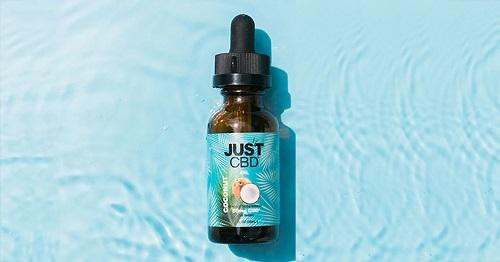In recent years, the spotlight on cannabidiol (CBD) oil has intensified, casting a glow on its potential as a natural remedy for various ailments. Derived from the cannabis plant, cbd oil is garnering attention for its purported therapeutic properties without the intoxicating effects commonly associated with marijuana. As research continues to unfold, the conversation surrounding CBD oil evolves, revealing its promising role in holistic wellness.
CBD, one of over a hundred cannabinoids found in cannabis, interacts with the body's endocannabinoid system, a complex network responsible for regulating various physiological functions, including mood, sleep, appetite, and immune response. Unlike tetrahydrocannabinol (THC), another prominent cannabinoid, CBD doesn't induce a euphoric high, making it an appealing option for those seeking therapeutic benefits without impairment.
One of the most touted applications of cbd drops is in pain management. Studies suggest that CBD may alleviate chronic pain by influencing endocannabinoid receptor activity, reducing inflammation, and interacting with neurotransmitters. From arthritis to neuropathic pain, individuals are turning to CBD oil as a potential alternative or complement to traditional pain-relief medications, with promising results reported anecdotally and in preliminary research.
Moreover, CBD oil is gaining recognition for its potential in addressing mental health concerns. Anxiety and depression, pervasive disorders affecting millions worldwide, are areas where CBD shows promise. Research indicates that CBD may help alleviate symptoms of anxiety by interacting with serotonin receptors in the brain, which regulate mood and stress levels. Similarly, its ability to promote relaxation without the psychoactive effects of THC has piqued interest in managing stress and improving sleep quality.
In the realm of neurological disorders, CBD oil is emerging as a beacon of hope. Epilepsy, a condition characterized by recurrent seizures, has drawn significant attention due to CBD's anticonvulsant properties. Epidiolex, a CBD-based medication, has been approved by the U.S. Food and Drug Administration (FDA) for the treatment of certain types of epilepsy, marking a pivotal moment in cannabinoid therapeutics. Beyond epilepsy, ongoing research explores the potential of CBD in mitigating symptoms of neurodegenerative diseases like Alzheimer's and Parkinson's.
Furthermore, CBD oil's anti-inflammatory and antioxidant properties make it a contender in skincare and dermatology. From acne to eczema, anecdotal evidence suggests that CBD's ability to regulate sebum production and reduce inflammation could offer relief for various skin conditions. Coupled with its potential to combat oxidative stress, CBD-infused skincare products are gaining traction for their purported ability to promote skin health and combat signs of aging.
Despite the growing body of research and anecdotal evidence supporting the therapeutic potential of CBD oil, it's crucial to approach it with discernment. Regulation and standardization of CBD products remain inconsistent, leading to variability in quality and potency across brands. Additionally, while CBD is generally well-tolerated, it can interact with certain medications, underscoring the importance of consulting a healthcare professional before incorporating it into one's wellness regimen.
In conclusion, CBD oil represents a fascinating intersection of science and nature, offering a holistic approach to health and wellness. From pain management to mental health support and skincare, its versatility is captivating. As research continues to unveil the intricacies of CBD's mechanisms and therapeutic potential, it holds promise as a natural remedy for various ailments, empowering individuals on their journey to well-being.
For more info visit our website :-
how long does cannabis oil last





Comments